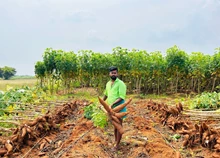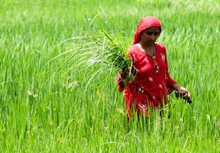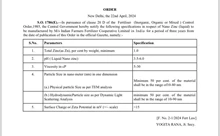
A new study reveals alarming connections between climate change and the proliferation of the destructive fungal plant disease known as wheat blast. Presently menacing 6.4 million hectares of cropland, the disease is projected to escalate its threat, imperiling 13.5 million hectares by 2050, cautioned the research.
Global Impact of Wheat Blast
The analysis, encompassing 86 countries across six continents, delineated the potential jeopardy to wheat-growing regions worldwide. South America and Africa emerge as the most vulnerable, with up to 75 percent of their wheat acreage at risk by 2050, according to the researchers from institutes such as the International Maize and Wheat Improvement Center (CIMMYT) and the University of Florida.
Climate Change Nexus
Attributed to a convergence of factors, including escalating temperatures and sustained leaf moisture, the proliferation of the pathogen could worsen the global wheat yield decline. The implications are profound, not only for wheat but for other staple food crops as well.
Historical Precedents and Emerging Trends
The genesis of the wheat blast in Brazil in 1985 heralded a history of devastating outbreaks, culminating in an epidemic in Bangladesh in 2016. Climate-induced temperature anomalies played a role in the epidemic's dissemination, portending future occurrences in hitherto unaffected regions.
While South America grapples with the endemic presence of wheat blast, its incursion into new territories looms ominously. Countries like Brazil, Argentina, Bolivia, and Paraguay face heightened susceptibility, with neighboring nations like Uruguay and Zambia also on high alert.
Global Response and Mitigation Strategies
In response to the ongoing threat, concerted efforts are underway to fortify global wheat resilience. Initiatives such as breeding blast-resistant varieties and strategic crop diversification are advocated as vital mitigation measures. Moreover, judicious adjustments in planting schedules serve as a bulwark against the disease's proliferation.











